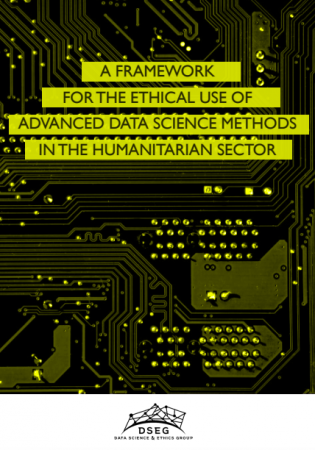A Framework For The Ethical Use Of Advanced Data Science Methods In The Humanitarian Sector

This is a framework for applying data science methods for humanitarian outcomes. It aims to provide a set of ethical and practical guidelines for humanitarian data collectors, users, and stakeholders to consider when applying data science for humanitarian work. This work is at the juncture of data science (in particular AI), ethics, responsible data management, humanitarian innovation, and humanitarian principles and standards.
This framework is designed to highlight key ethical considerations and to provide a practical guide for exploring or implementing advanced data science methods to support humanitarian outcomes. While this document is not exhaustive – nor is it possible to highlight all known or unknown associated risks or potential ethical considerations at this nascent stage of data science applications in the humanitarian field – this document aims to provide technical and procedural considerations to mitigate the ethical risks that may arise in humanitarian data science work. Most importantly, in an era of rapidly developing technology, this document seeks to stimulate a much-needed conversation about the continued adherence to humanitarian principles and protection and consolidates further research into the considerations by the humanitarian sector as technology evolves and new frameworks develop around this topic. The future of advanced data science has the potential to assist humanitarian efforts by making it more efficient, expedient, and potentially anticipatory instead of responsive. However, it is of the highest importance that these methods are used responsibly, ensuring that humanitarian organizations continue to protect, uphold the dignity of, and empower the people they aim to support.